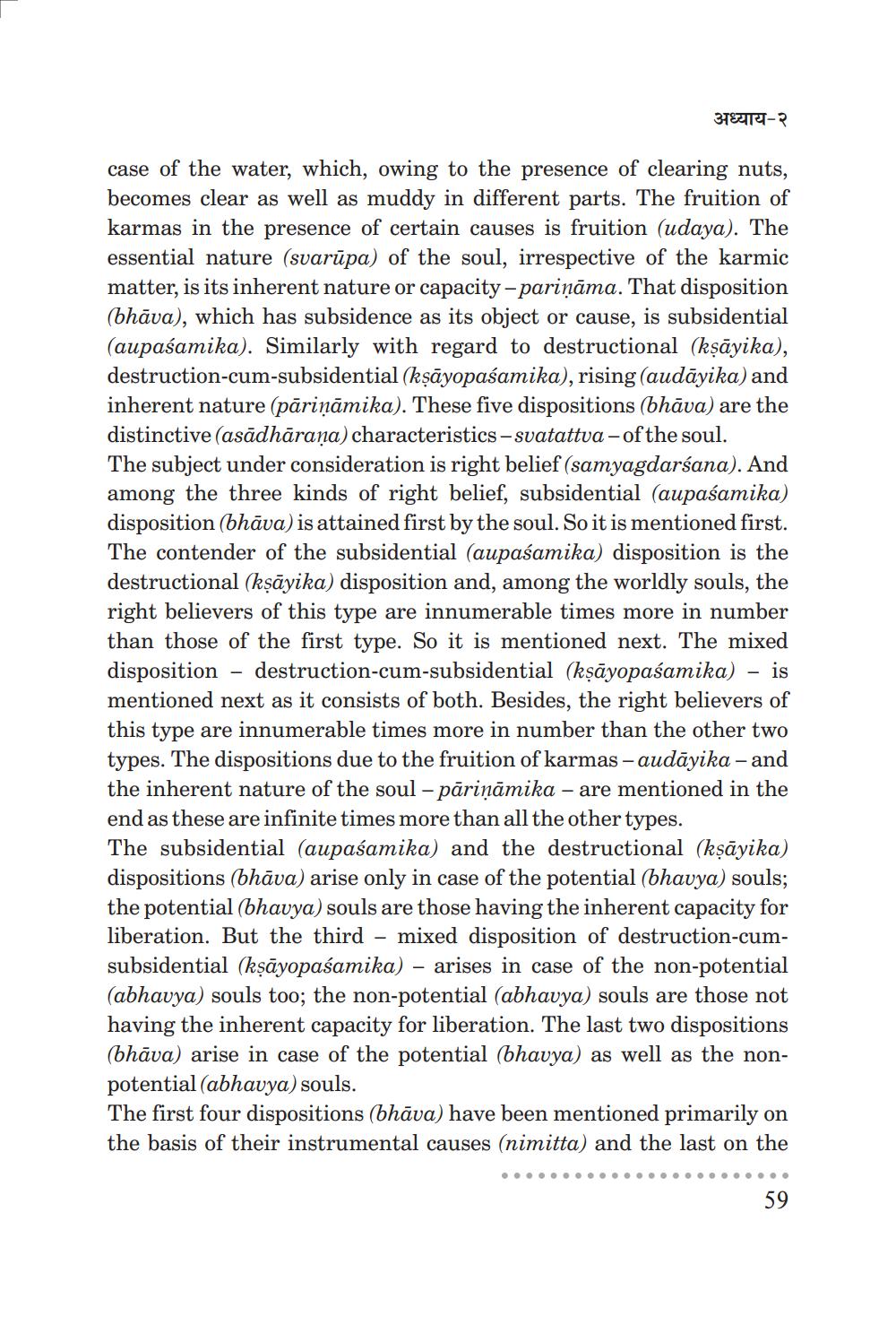________________
अध्याय-२
case of the water, which, owing to the presence of clearing nuts, becomes clear as well as muddy in different parts. The fruition of karmas in the presence of certain causes is fruition (udaya). The essential nature (svarūpa) of the soul, irrespective of the karmic matter, is its inherent nature or capacity - parināma. That disposition (bhāva), which has subsidence as its object or cause, is subsidential (aupaśamika). Similarly with regard to destructional (kṣāyika), destruction-cum-subsidential (ksāyopaśamika), rising (audāyika) and inherent nature (pārināmika). These five dispositions (bhāva) are the distinctive (asādhāraṇa) characteristics - svatattva - of the soul. The subject under consideration is right belief (samyagdarśana). And among the three kinds of right belief, subsidential (aupaśamika) disposition (bhāva) is attained first by the soul. So it is mentioned first. The contender of the subsidential (aupaśamika) disposition is the destructional (kṣāyika) disposition and, among the worldly souls, the right believers of this type are innumerable times more in number than those of the first type. So it is mentioned next. The mixed disposition - destruction-cum-subsidential (kṣāyopaśamika) - is mentioned next as it consists of both. Besides, the right believers of this type are innumerable times more in number than the other two types. The dispositions due to the fruition of karmas - audāyika - and the inherent nature of the soul - pārināmika - are mentioned in the end as these are infinite times more than all the other types. The subsidential (aupaśamika) and the destructional (kşāyika) dispositions (bhāva) arise only in case of the potential (bhavya) souls; the potential (bhavya) souls are those having the inherent capacity for liberation. But the third – mixed disposition of destruction-cumsubsidential (kṣāyopaśamika) - arises in case of the non-potential (abhavya) souls too; the non-potential (abhavya) souls are those not having the inherent capacity for liberation. The last two dispositions (bhāva) arise in case of the potential (bhavya) as well as the nonpotential (abhavya) souls. The first four dispositions (bhāva) have been mentioned primarily on the basis of their instrumental causes (nimitta) and the last on the
59




